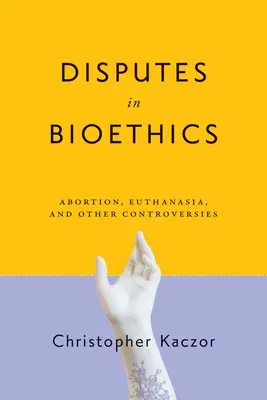Disputes in Bioethics tackles some of the most debated questions in
contemporary scholarship about the beginning and end of life. This
collection of essays takes up questions about the dawn of human life,
including: Should we make children with three (or more) parents? Is it
better never to have been born? and Why should the baby live? This
volume also asks about the dusk of human life: Is "death with dignity" a
dangerous euphemism? Should euthanasia be permitted for children? Does
assisted suicide harm those who do not choose to die? Still other
questions are asked concerning recent views that health care
professionals should not have a right to conscientiously object to legal
and accepted medical practices. Finally, the book addresses questions
about separating conjoined twins as well as the issue of whether the
species of an individual makes a difference for the individual's moral
status.
Christopher Kaczor critiques some of the most recent and influential
positions in bioethics, while eschewing both consequentialism and
principalism. Rooted in the Catholic principle that faith and reason are
harmonious, this book shows how Catholic bioethical teaching is
rationally defensible in terms that people of good will, secular or
religious, can accept. Proceeding from a natural law perspective, Kaczor
defends the inherent dignity of all human beings and argues that they
merit the protection of their basic human goods because of that inherent
dignity. Philosophers interested in applied ethics, as well as students
and professors of law, will profit from reading Disputes in Bioethics.
The book aims to be both philosophically sophisticated and accessible
for students and experienced researchers alike.

